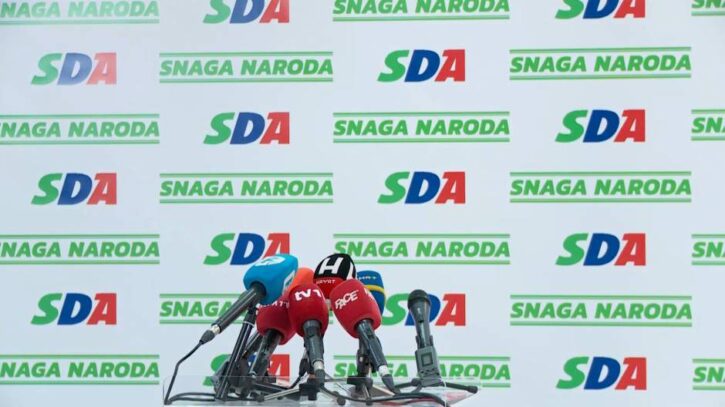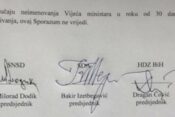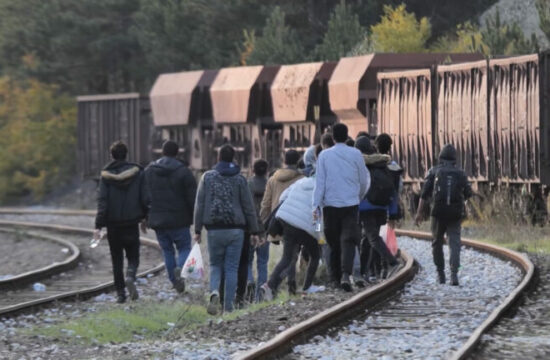
Sending a modified Annual National Programme to NATO would break the deadlock in forming Bosnia’s new government, the Party for Democratic Action (SDA) said in a Wednesday statement.
“The only solution for overcoming the current stagnation in the Euro-Atlantic integration process and to establish the new Council of Ministers is the adoption of a modified Annual National Programme. An ANP with a content which satisfies all sides in Bosnia and Herzegovina and the implementation of which will be credible must be adopted without postponement,” the party said.
The main reason why Bosnia has not formed a new government, officially called the ‘Council of Minisiters’, is bickering among the three right-wing parties which won the October 2018 election over whether Bosnia should become a NATO member or not.
Although they initially supported Bosnia joining the alliance, Bosnian Serb politicians changed their minds a few years ago and now refuse to let the country make any further steps toward membership, while Bosniaks insist on it.
Bosnian Serb leader Milorad Dodik argued that Republika Srpska (RS), the Serb-dominated semi-autonomous entity within Bosnia, has adopted in 2017 a Resolution on Military Neutrality in line with neighbouring Serbia, which means it opposes membership in any military alliances.
The swords are being crossed now over the next step on that path – sending the country’s Annual National Programme (ANP) to NATO.
The leaders of the three parties – Bosniak Bakir Izetbegovic, from the Party for Democratic Action (SDA), Serb Milorad Dodik, from the Alliance of Independent Social Democrats (SNSD) and Croat Dragan Covic, from the Croat Democratic Union (HDZ) – signed last Monday an Agreement which was supposed to end the bickering and which should result in the formation of the new government.
The Agreement addresses the NATO issue in one of its 12 principles but with such vague wording that nobody can say for sure what it means.
Dodik said on Tuesday that the ANP will not be sent.
But according to the SDA, rejecting dialogue and a compromise will have negative consequences for the process of forming the Council of Ministers and continuing Euro-Atlantic integration, as well as for Bosnia generally.
“If he rejects a compromise solution, Dodik will show that he does not respect the principles for forming the government on the state level which I signed, and he will be fully responsible for all further consequences,” Izetbegovic said, according to the SDA statement.
Dodik argued a day before that if the government is not formed within 30 days after the Agreement was signed, the National Assembly in Bosnia’s Serb-majority part, Republika Srpska (RS), will adopt a decision which will make all post-war decisions not strictly in accordance with the 1995 Dayton Peace Agreement which ended the Bosnian war invalid. This would mean that even the reforms that have been so far successful and moved the country closer to the EU and NATO standards, such as forming a state court and police agency, will be annulled.
Izetbegovic said that such a decision would represent a breach of the Constitution and a threat to stability and peace in the country. It should raise alarms in the Office of the High Representative (OHR), the international official overseeing the civilian implementation of the Dayton Agreement, among countries within the Peace Implementation Council which oversees the peace process and in the UN Security Council, the SDA said.
“If Dodik decides to start breaching the Constitution and law, he will take the country into a state of chaos and into the biggest crisis since the Dayton Agreement was signed, and will surely jeopardise stability in Bosnia and Herzegovina and the region,” it said.
The party also added that should this happen, Dodik will be the one to suffer the consequences the most.







